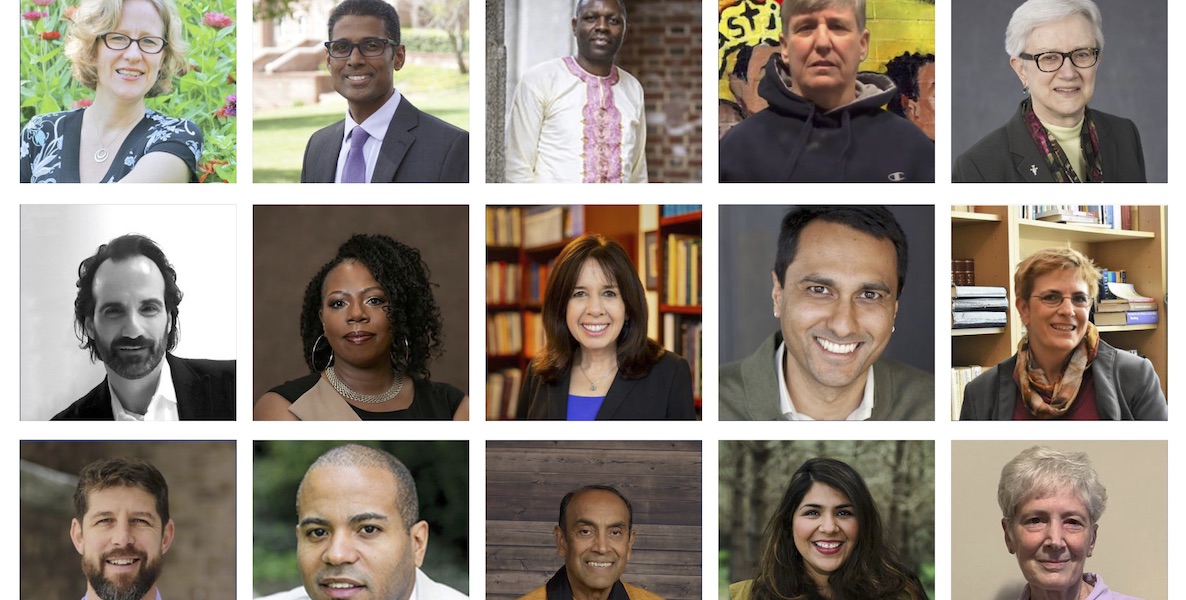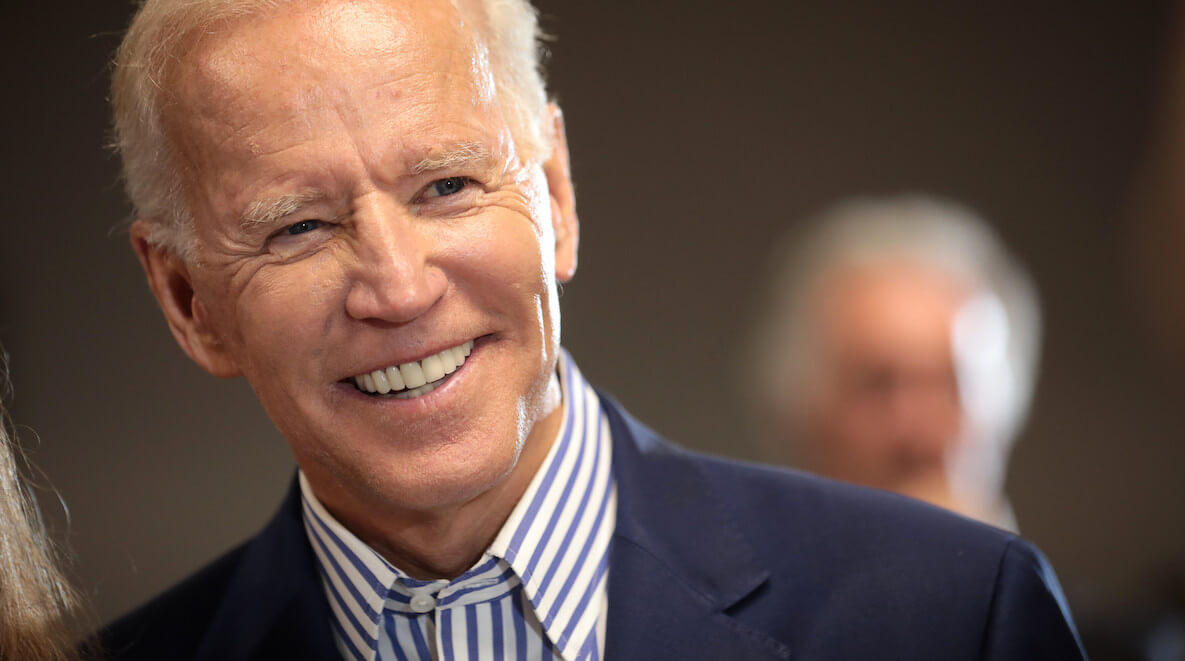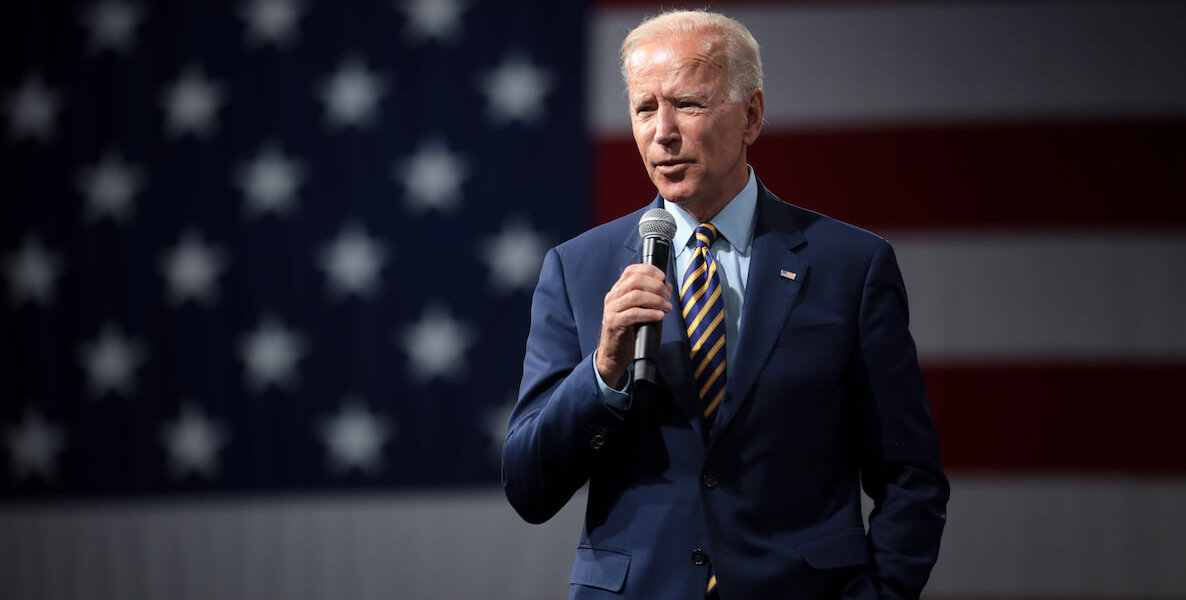“Hope is not idle optimism that all will turn out for the best, but active faith that the world can be different than it is and that we can play a part in shaping it.”
—Rabbi Dr. Rachel S. Mikva
Letter 16, February 4, 2021
American Values, Religious Voices
It was just after the 2016 election, and Rabbi Andrea Weiss, provost at Hebrew Union College-Jewish Institute of Religion and a Bible scholar who lives in Bala Cynwyd, was longing for a sense of hope.
“Throughout the campaign, it was so unsettling how many of the values and ideas that I’d always taken for granted as really being fundamental American values—religious freedom, tolerance, kindness, decency—seemed to be called into question, if not upended,” she says. It occurred to her that many of those same values are connected to religious traditions and to the texts that people like her teach.
And then an idea popped into her head:
What if I could get 100 scholars of religion to write a letter a day that we would send to the President, Vice President, and members of the 115th Congress, articulating our core American values and the ways they connect to our different religious traditions, the way in which the wisdom from our various religious teachings and text provide guidance and insight, particularly at that moment?
She envisioned assembling a diverse roster of scholars from all religions, races, gender identities, and parts of the country to pen letters of about 350 words—short enough that overcommitted scholars could take on the task, brief enough that people would read them.
“When Donald Trump won, I felt very personally deflated and also voiceless and powerless. I couldn’t figure out what I personally could do to try and unify people. There was just no conversation, no dialogue, just anger and sides,” Weinberger says.
And she envisioned two audiences for them: The first—Trump, Pence, and Congress; the second—subscribers, everyday citizens.
As the idea evolved in her mind, she reached out to her longtime friend, Lisa Weinberger. Weinberger is the founder and creative director at Masters Group Design, the Philly creative studio that focuses on amplifying the work of go-dood initiatives, like FringeArts, Committee of Seventy, Play On Philly and so many more.
Weinberger had been feeling bereft, “trapped,” as she says, “in the vitriol and divisiveness that the 2016 campaign season had created.”
Read the lettersDelve Deeper
When she received Weiss’s email, explaining her vision for the letter-writing campaign, Weinberger replied with just one word:
YES.
Weinberger doesn’t consider herself religious; but she saw this project not as a “religious” one so much an opportunity to take on a unity project. With her years of experience in branding, she explained to Weiss the importance of coming up with a campaign name, a brand, an identity—“otherwise, the letters would just be lost voices in the universe.”
What the women came up with is American Values, Religious Voices—a campaign that lives via a website, subscription, and on various social media channels, through which subscribers receive a powerful letter from a different religious scholar every day. Scholars are Buddhist, Christian, Hindu, Jewish, Muslim, and Sikh, and from all around the country.
On January 20, 2017, the site went live—and continued for 100 days. While only one legislative aide, from among thousands who received the letters each day, replied, the response from the public was staggering. They have more than 2,200 subscribers to the letters, and drew in nearly 70,000 unique users throughout the campaign.
How you can get involvedDO MORE
“The letters were providing a source of healing and a source of connection. And that’s what I feel is the potential of this project, the way it can give us an opportunity to be in conversation with people who are different from us, and who may have different religious backgrounds and political views,” Weiss says.
“Our views on policy may differ, but can we agree about love? Can we agree about empathy? Can we agree about these other core values of hope and healing? Can the letters be an opening to at least talk about the values that we share?” Weiss says.
“Our views on policy may differ, but can we agree about love? Can we agree about empathy? Can we agree about these other core values of hope and healing? Can the letters be an opening to at least talk about the values that we share?” Weiss says.
Weinberger says it healed her, too. “Once the campaign was launched, I suddenly found myself as the recipient of the campaign message, as a subscriber—and it felt like a lifeline,” she says. “It’s like our original intention was to almost write a guidebook for our national leaders. And in the absence of their response, there was a chorus of people who rose up and made comments that allowed me to feel like I had a connection again with compassionate people, with empathetic people, with people who had hope and wanted to listen and be part of the audience that I wanted to be a part of. And that to me was a priceless experience. It gave me an opportunity to be a part of something hopeful and civil.”
The collection of letters from 2017 now live in a book, American Values, Religious Voices: 100 Days. 100 Letters.
The women didn’t envision doing the project again this year. Then, in the days after the 2020 election, Weiss had that feeling again: She had a letter in her, waiting to be written. Weinberger, of course, was on board.
This time around, they added even more voices, and more texture—videos and audio of the scholars reading their letters out loud, for example. Within the first 20 days of the 2021 campaign, they had 10,490 unique users view the letters.
Attend the eventDo Something
Bradley had been following the Voices and Values campaign the first time around, and when he heard that it was coming back for 2021, he saw an opportunity to create a performance around it.
“I’m always interested in ways of activating lots of different voices to respond to issues that affect lots of people,” he says. “I’m always interested in ways you can creatively make a meeting place for ideas, perspectives, stories.”
He’d experienced how readings involving community voices could be galvanizing and spark dialogue; he’d worked with Theater of War, for example, traveling throughout the country and abroad, stimulating dialogue around mental health and substance abuse issues, often in military communities.
“The larger idea of this project is a weaving together of different points of view, and different ways of thinking across these religious traditions, across the country,” Bradley says. “And I think the way we best live up to what we say we want to be in this country is to continue to weave together ideas, stories, perspectives, voices. And lift those up in as compelling a way as you can to get people energized by it.”
The event will feature Academy Award Nominee and Emmy-winning actor David Strathairn; Broadway’s Angel Desai; singer/songwriter Keisha Hutchins Hirlinger; Michele Tauber, of HBO Max’s Search Party, and more.
“It was fun to think about putting down the stakes of a big tent and seeing who we could bring underneath it,” Bradley says. “And what’s been heartening is to see people saying I’d love to participate—count me in.
Bradley will also be moderating a conversation after the performances.
“This is another way of creating light together. It’s a little way in which we all can do something. Individually, it’s hard to feel like you have an impact; but collectively, we can really try to make something positive happen,” says Weiss.
“We’re really interested in hearing how the letters resonate with people, as well as what it can spark for what citizens can do to help move us forward in living up to these ideals of this country,” he says. That doesn’t have to mean that citizens are coming up with giant policy ideas. “You don’t expect everyone to come up with a million ideas on the spot, but this is meant to be the notion that we’re all involved in this. These letters are obviously being written to members of the federal government, but I think they’re also letters we can listen to that encourage us to think about who we want to be.”
Weiss and Weinberger were thrilled when Bradley approached them.
“I see this project as ripples,” Weiss says, of its expansion into live performance. Among the letters that have helped her articulate what this project is about for her—and also the potential of this kind of work for others—are Letter 36 from the 2017 campaign from Murali Balaji, Director of Education and Curriculum Reform at Hindu American Foundation, and Letter 4 from this year, from Marc Z. Brettler, Professor of Jewish Studies at Duke University. They write respectively:
“What can we do to create light together?”
And: “Standing idly by or arguing that someone else should step up is not an option. We are each accountable if we do not work to improve our communities.”
“And for me, this project has been a way of stepping up,” Weiss says. “This is another way of creating light together. It’s a little way in which we all can do something. Individually, it’s hard to feel like you have an impact; but collectively, we can really try to make something happen.”
Monday, February 15, 8pm, free (registration required) via Zoom; register here.





